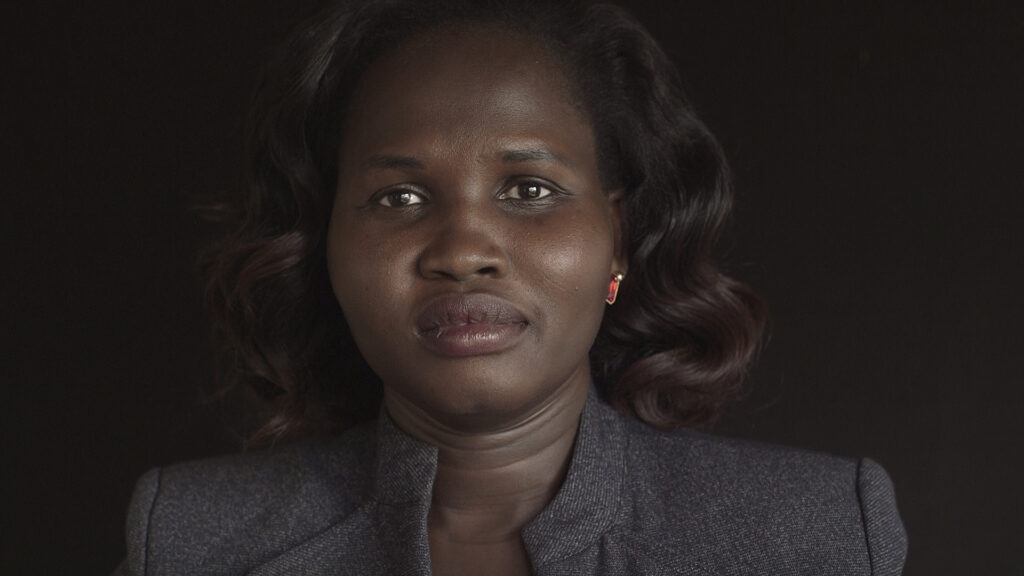The trial continues to unfold in Stockholm, where from May 28th to September 26th, 2024, 14 out of 32 South Sudanese plaintiffs testified in court. Each plaintiff recounted how their lives were upended starting 1998, the year Lundin entered South Sudan, sharing their harrowing experiences about Government forces and allied militias attacking villages, looting, burning homes, stealing livestock, and killing civilians indiscriminately. They all described the systematic targeting of civilians, massive destruction, the forced displacement from their homes, and the loss of loved ones, prompting multiple court recesses when plaintiffs became overwhelmed with grief. Together, their accounts painted a coherent and compelling picture of destruction, cruelty, and systematic war crimes.
According to the indictment, the testimonies of the plaintiffs are intended to demonstrate “that the Sudanese military and regime allied militia systematically attacked civilians and private property, or in any case carried out indiscriminate attacks.” This includes shooting and burning of unarmed civilians, aerial bombardments, missile and machine-gun attacks from helicopters, and “civilians to be abducted [read: enslaved], plundered and driven away from their homes, and for private property to be destroyed.” All the plaintiffs’ testimonies fully supported the indictment.
The defence lawyers did not directly contest the essence of the testimonies but instead seized upon purported inconsistencies with statements that plaintiffs had made in earlier police interviews. They focussed on specifics regarding dates, locations, and other details, in what appeared attempts to undermine the overall credibility of the plaintiffs. Several of them displayed signs of trauma from their experiences and expressed frustration at being challenged about details.
Courts generally recognize that human memory is not a perfect machine and often regard flawless descriptions and precise memories with scepticism. As time passes, recollections lose precision and flaws in memories do not inherently discredit entire testimonies. Also, there are abundant independent sources in the Lundin case files that corroborate accounts of plaintiffs. The defence’s meticulous search for discrepancies in testimonies seemed random and did not resemble a purposeful attempt to refute key components of the indictment, such as the descriptions of the five military offensives by the Government and allied militias. The defences’ tactic led to occasional uneasy wrangling in court but did nothing to disprove that systematic war crimes had been committed.
The testimonies provided unexpected support for the prosecution. Some plaintiffs who were former employees of Lundin described how the company’s expat staff and security officers supplied militias with money and how they provided fuel, transportation, and communication services to the Sudanese Armed Forces. While the indictment does not explicitly address such direct support, these testimonies show collaboration between Lundin and alleged perpetrators of war crimes, and contradict the defence’s assertions that Lundin was not involved in the war. Furthermore, the testimonies were inconsistent with the defence’s claim that the evidence about oil related violence is based on SPLA propaganda. Instead, they contradict Lundin’s narrative of being welcomed by the population and having contributed to peace and prosperity.
There was something irresistible about the large number of South Sudanese paintiffs, who had travelled 6,000 kilometres to share their experiences from 25 years ago before a court in Sweden. Each of them described their very personal experiences, which together formed a unified account of the violent destruction of their society.
The court will resume hearings from October 8 to November 20 in Kigali, Rwanda, with 12 additional South Sudanese plaintiffs scheduled to testify. These proceedings are streamed live in the Stockholm district court. Four more plaintiffs will be heard in Stockholm from November 27th to December 4th. The defendant Ian Lundin is will testify from 10 to 19 December, followed by Alex Schneiter from 14 to 23 January 2025. The remainder of 2025 has been designated for 56 expert witnesses and witnesses for the defence. The final pleas are scheduled for January and February 2026.



